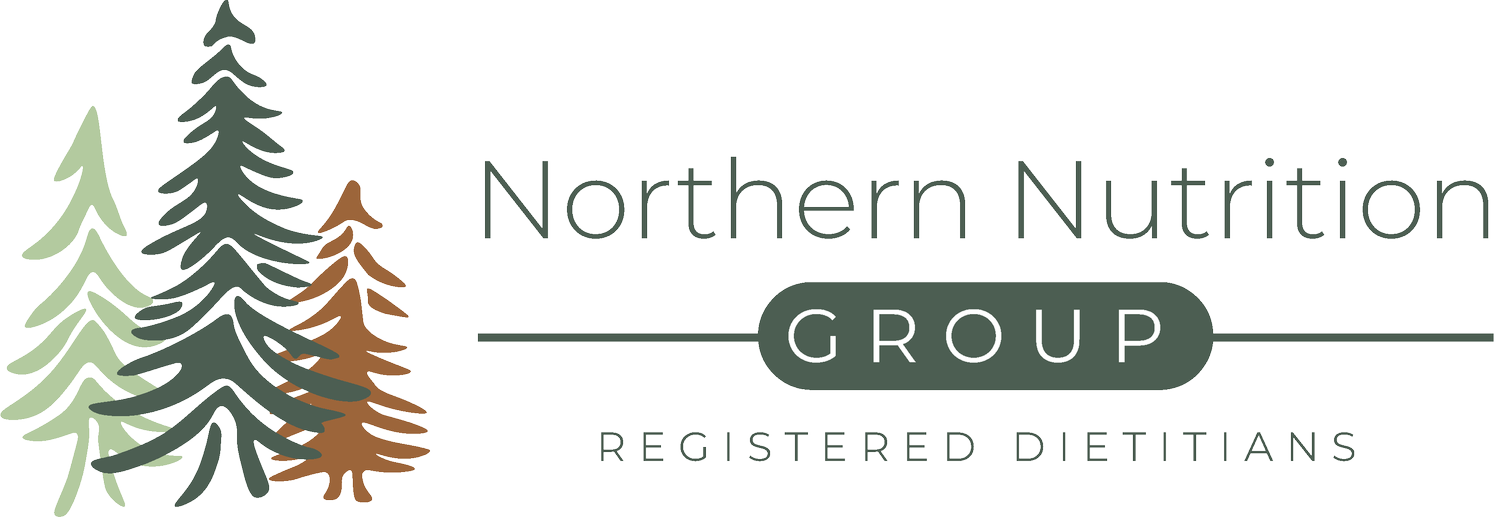What is a Sustainable Diet? And What Does It Mean for Us in Bozeman, MT?
Ever heard the term “sustainable diet” and wondered, is that just another food trend? You’re not alone - and you’re in the right place! Jessy Griffel, a registered dietitian and grad student studying Sustainable Food Systems, is here to share what a sustainable diet means for you - especially here in Bozeman.
A lot of messages about food and sustainability can feel overwhelming - or even triggering - especially when they’re wrapped up in diet culture. At Northern Nutrition Group, we're all about keeping nutrition advice real and respectful. So today, we’re exploring sustainable eating through a weight-inclusive, judgment-free lens - one that fits our lives here in Bozeman.
We’re not here to tell you what to eat or make you feel bad about your food choices. Instead, we want to share small, helpful steps for how we can all think about food a little differently, right here in our community.
So… What is a Sustainable Diet?
At first glance, a sustainable diet may just seem like it is about farming or the environment, but it’s also about the people eating the foods. A sustainable diet is one where you have healthy, safe and nutritious foods, while also having a low environmental impact and being accessible, affordable and culturally acceptable to all our neighbors too. (FAO 2012). Eating sustainably means choosing foods that nourish your body, are kind to the planet, and support the people who grow and make our food. It’s not about being perfect - it's about doing what we can, when we can. In short: it’s about eating in a way that works to keep your body, your community and the planet healthy - now and in the future.
What might this look like in Bozeman?
In Bozeman, eating sustainably might look different for everyone. Here are a few ideas to get started, consider what might be right for you and your household at this time:
Shopping seasonally and locally at the farmers market or joining a local CSA (Community Supported Agriculture), generally buying food that is grown in Montana at stores and restaurants when possible- like lentils, barley or root veggies.
Supporting small, local ranchers or businesses and getting top quality nutrients.
Planning your meals to reduce unused or leftover food waste.
Giving gardening a try to produce and share your locally grown goods.
Choose one less processed food and one more whole food, especially fruits and vegetables, on your plate.
Buy in bulk and use reusable bags or containers to reduce extra packaging.
Occasionally swap out animal protein and give plant-based protein a try to reduce greenhouse gas emissions while increasing fiber and protein diversity.
Start the conversation with family and friends about sustainable foods to raise awareness about how easy it can be to implement strategies.
These small steps add up and help support the people and land around us.
Final Thoughts: It’s a journey, Not a Checklist
There is no “perfect” way to eat and it’s totally normal for your food choices to change over time. What matters most is staying curious, being open and kind - to ourselves, to others and to the Earth. Eating sustainably means making choices that work for your life and your values.
Local resource links:
References: https://eatforum.org/content/uploads/2019/07/EAT-Lancet_Commission_Summary_Report.pdfhttps://www.eatright.org/food/planning/food-security-and-sustainability/sustainable-eating-1Written by Jessy Griffel, RD, LN, CNSC
Jessy specializes in: Cancer nutrition care and enteral nutrition support therapy (Tube feeding support), athletes/outdoor enthusiast, plant-based (vegetarian/vegan) diets, nutritional deficiencies and abnormal lab values, and weight concerns addressed through a weight-inclusive approach.
